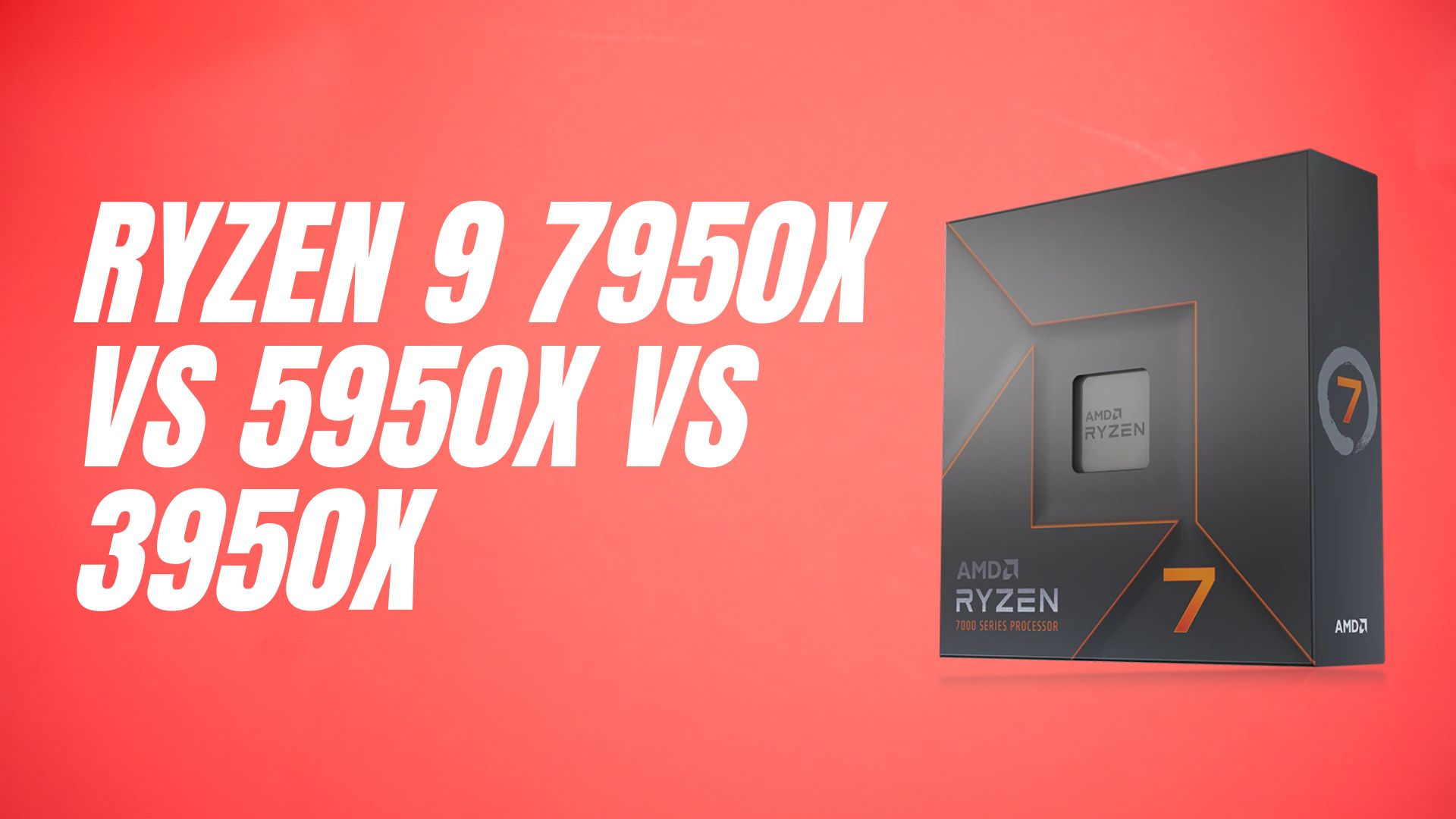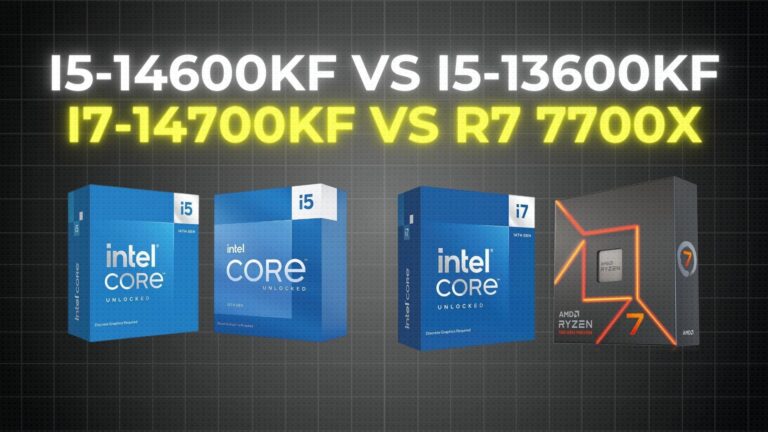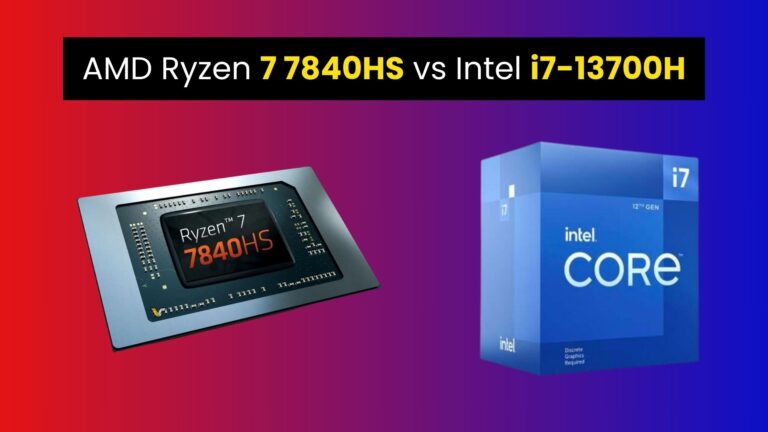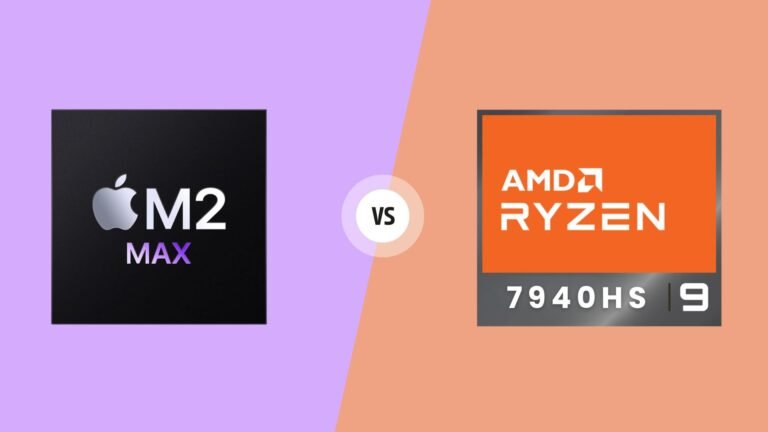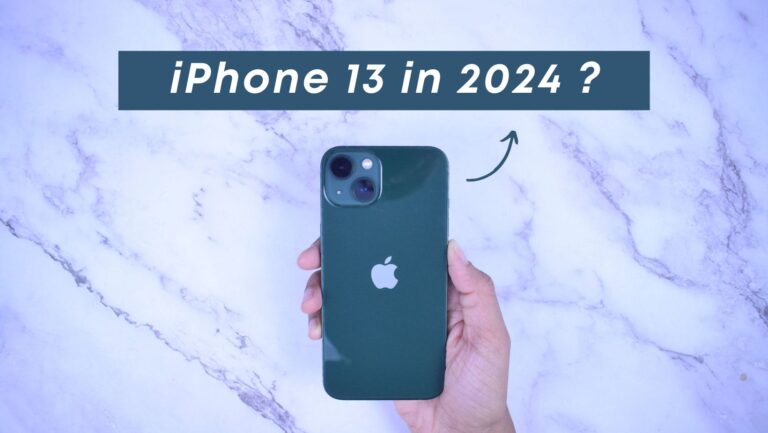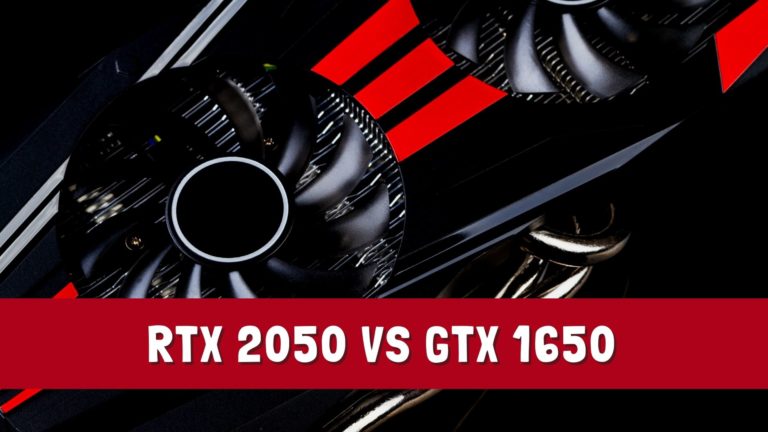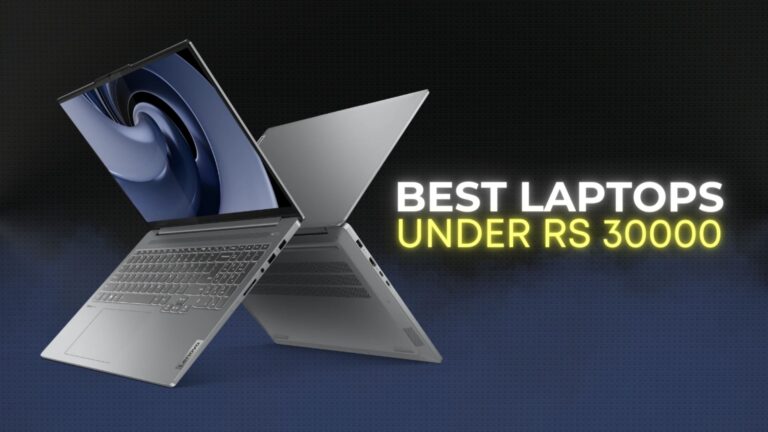I have compared AMD Ryzen 9 7950X with 5950X and 3950X in 5 Applications and 8 Games at three different resolutions. So, should you really upgrade or you should save money by getting an older model.
Specifications
| 3950X | 5950X | 7950X | |
| CORES/THREADS | 16/32 | 16/32 | 16/32 |
| BASE CLOCK | 3.5GHZ | 3.4GHZ | 4.5GHZ |
| BOOST CLOCK | 4.7GHZ | 4.9GHZ | 5.7GHZ |
| CACHE (L2/L3) | 8MB/64MB | 8MB/64MB | 16MB/64MB |
| MEMORY | DDR4 | DDR4 | DDR5 |
| TDP | 105W | 105W | 170W |
| TSMC FINFET | 7NM | 7NM | 5NM |
| INTERGRATED GPU | NO | NO | YES |
| LAUNCH DATE | JULY 2019 | MAY 2020 | SEP 2022 |
The similar thing in all these CPUs is Cores/Threads. Base and Boost clocks differ in all three CPUs, and Higher Boost Clocks mean Higher CPU Speed. The upgrade you will see in Ryzen 9 7950X is that it uses DDR5 memory, has integrated graphics, and has double the L2 cache than 5950X.
Pricing
While writing, the 7950X sells at the launch price of $700, the 5950X is for around $580, and the 3950X is for $500. The prices will change over time, so click on the above links to get the latest price.
Now a question will arise in your mind: Should I upgrade to 7950X? or can I save money by getting older CPUs? and for that you have see benchmarks.
Performance
Now I will show you the Application and Gaming Benchmarks I have tested, but before that, take a look at My System Specifications:
- Motherboard (AM5) – Gigabyte Aorus X670E Master
- Motherboard (AM4) – MSI X570S Carbon WiFi
- RAM (AM5) – 32GB DDR5 6000Mhz
- RAM (AM4) – 16GB DDR4 3200Mhz
- GPU – GIGABYTE GeForce RTX 3090 Ti Gaming OC
Application Benchmarks

Cinebench R23 is the best way to get the general idea of where single and multi threaded performance stands. It is obvious that the new 7950X offers us a significant performance improvement over the previous two generations. In single-core score, the 7950X is 47% higher than the 3950X and 39% better than the 5950X. And in Multi-core score, the 7950X outperformed the 5950X by 22%.

The Corona benchmark also uses the processor to render out a scene, and lower scores are preferable.

Compression and decompression tests were performed using 7-Zip. In general, Ryzen performs much better than Intel processors. The difference between the 3950X and 5950X is smaller than the 7950X in comparison to many of the other workloads tested.

Puget Systems’ benchmarking was used to evaluate Adobe Premiere. The older 3950X and 5950X differ only slightly from one another, with the 7950X having a larger lead.

With more single threaded performance, Adobe Photoshop performs better. The 7950X outperforms the 5950X by 18%, and the older 3950X by 23%.
Game Benchmarks

Red Dead Redemption 2 was tested using the game’s benchmark. At 4K, there is no difference in FPS but at 1440p, the 3950X was around 20FPS behind. At 1080p, the 7950X outperformed the 3950X by 31% and the 5950X by 10%.

Cyberpunk 2077 showed no differences at 1440p or 4K because of GPU limits. But at 1080p, the 7950X only had a small 3.2% boost to average FPS compared to the 5950X, and 20% ahead of the older 3950X.

Fortnite had fewer issues, but the 7950X consistently outperformed the competition in terms of average frame rates.

In Apex Legends, the 7950X was only able to start beating the 3950X clearly at the highest 4K resolution, while the 5950X was a little behind the older 3950X at 1080p and 1440p.

In Call of Duty Warzone, things start to appear a little strange. The 5950X was slightly superior at 1080p, in addition to the fact that the differences between all three processors are much smaller at all three resolutions.

Halo Infinite also experienced no differences between the 5950X and 7950X at 1440p or between the three CPUs at 4K. The biggest differences were observed at 1080p, where the 7950X outperformed the 3950X by 34% and the 5950X by 15%.

In the Sydney landing challenge, Microsoft Flight Simulator was put to the test, and at 4K resolution, there isn’t much of a difference between the 7950X and 5950X. However, at 1440p and 1080p, where the CPU difference is more significant, the gaps are wider. At 1440p, the 7950X offers a respectable 39% improvement over the 3950X, but only a 16% advantage over the 5950X.

Spiderman is the last game on the list, and at 1080p, the 7950X was outperforming the older 3950X by an average of 43% FPS and the 5950X by an average of 24% FPS. At the higher 1440p resolution, the gaps are a little less noticeable. At 4K resolution, the differences are minimal.
Final Thoughts
The 7950X is undoubtedly a strong gaming option, but based on my preliminary testing, it appears to be competitive with the much less expensive Ryzen 7 7700X. Therefore, if you’re developing a system that is focused on gaming, something like that would just make more sense.
If you already own a 3950X, you can simply remove it and replace it with a 5950X without changing any hardware. So if you’ve already got a 3950X setup, then that will be a much cheaper upgrade path compared to going to the 7950X and getting new memory and motherboard.
And if you play games, as we just saw, switching from the 3950X to the 5950X will give you the majority of the benefits over spending more money on the 7950X. The 7950X does start to make more sense if you require the best productivity performance in applications.
